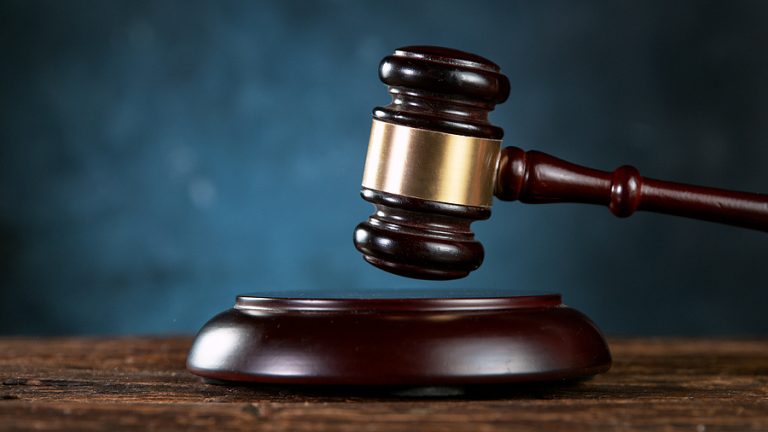How Does The Trial Process Work In A St. Pete Lawsuit?
 Michael Babboni
Law
If you’re a resident of St. Petersburg and you find yourself in a situation where you’re injured and should be compensated, but the person responsible refuses to be held accountable, you have few options. One of the most direct is to go to court for a civil lawsuit trial. Should you take this route, and win, this results in a legally enforceable verdict on the person or group that owes you compensation, forcing them to face legal consequences should they ignore the judgment.
Michael Babboni
Law
If you’re a resident of St. Petersburg and you find yourself in a situation where you’re injured and should be compensated, but the person responsible refuses to be held accountable, you have few options. One of the most direct is to go to court for a civil lawsuit trial. Should you take this route, and win, this results in a legally enforceable verdict on the person or group that owes you compensation, forcing them to face legal consequences should they ignore the judgment.However, the trial process, while conclusive, is far from simple or easy. It is a long, drawn-out experience that usually requires the attention and guidance of a St. Petersburg personal injury attorney, preferably one with trial experience.
But what happens if you have to go to trial? If all else fails and out-of-court settlement and mediation are out of the question, here’s what you can expect if you undertake a trial in St. Petersburg.
The Complaint
Once you’re committed to the civil lawsuit route, the first official document created is known as the “complaint.” This is the one that starts it all, outlining the exact nature of the case and who is involved in it, both as plaintiff and defendant. The complaint is submitted to a clerk and, once filed, begins the next stop of the process, which includes drafting a summons for the people who will be sued, better known as the defendants.
Pay The Fees
Once the complaint has been filed, it is time to pay the administrative fees. Nothing in the legal system is free, and though a personal injury lawyer may work on contingency, that is, not getting any payment until the case is won, the court system doesn’t operate this way.
The administrative processes involved in filing a lawsuit are complex and elaborate. They do not work quickly, so fees are required to acknowledge that you want to pursue this and offset the bureaucratic process necessary to move your case through the legal system.
Service Of Process
The next step is to notify the defendants of what is happening. You have already had a summons written for this phase. That summons is now given to a Deputy United States Marshal or another authorized person to deliver it personally and acknowledge receiving it.
Referral To Magistrate Judge
Once the summons has been served, the next step is to assign a judge. Two judges are required during this phase. The first is the Magistrate Judge, who presides over the pretrial motions and hearings. Once those processes have been completed, a District Judge will be assigned to adjudicate the trial. However, if the plaintiff and defendant consent, the Magistrate Judge can also be the District Judge overseeing the trial.
Answer
Once served a summons, a defendant has 21 days to respond. There are only three outcomes here. The defendant agrees to the trial, responds with a motion to dismiss the trial, or doesn’t respond at all, which can result in a default judgment in favor of the plaintiff.
Case Management & Scheduling
Once everything has been agreed upon, it is up to the legal teams to set up a schedule for moving the case forward to trial. This requires creating a case management report that is presented to the Magistrate Judge. When everything is in order, the judge will set a date for the actual trial.
Discovery
In the “discovery” phase, the legal teams investigate and collect evidence to reinforce their case. In some instances, the evidence may be so compelling for one side or the other that it’s obvious what the outcome will be, and motions can take place at this stage to negotiate and settle before going to trial.
Final Pretrial Conference
This is the last meeting before the trial and is usually held by the District Judge who manages the trial itself. The structure of the case, evidence found in discovery, and what will be used in the trial are now discussed.
Trial
The trial finally gets underway, and here arguments are made, evidence is presented, and if a jury determines the trial verdict, the jury must reach a unanimous decision. If the jury cannot reach a decision, they are discharged, and a new trial is set with a new jury to be selected.
Judgment
Once a final verdict has been reached, the judgment is entered into the record by the Judge, and arrangements must be made if compensation is owed to the plaintiff.
Notice Of Appeal
This does not always happen at the end of a civil lawsuit trial, but on some occasions, the defendants will contest a final verdict and have a last opportunity to appeal the ruling. However, there is a statute of limitations on appeals, and a clerk will only accept them if the appeal is submitted within 30 days of the judgment.
If you’ve been in a car accident in St. Petersburg and the other driver was negligent but won’t take responsibility, you may need to talk to a personal injury lawyer about your lawsuit and trial options.
